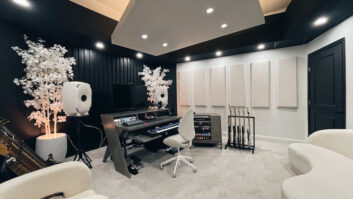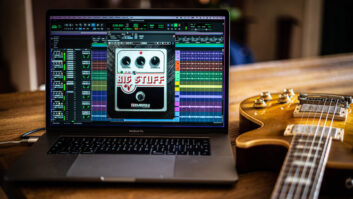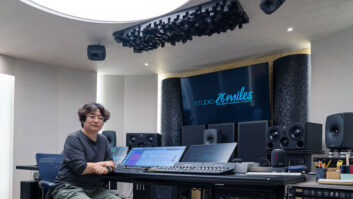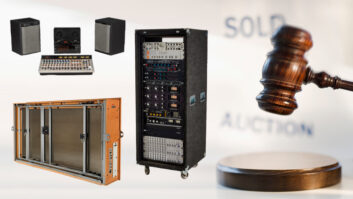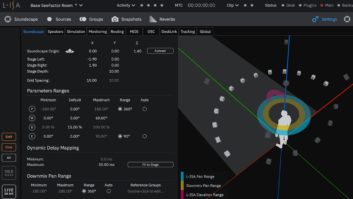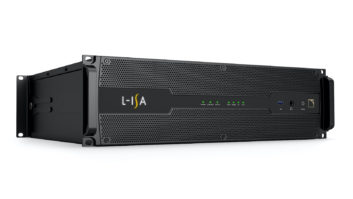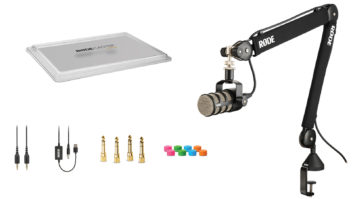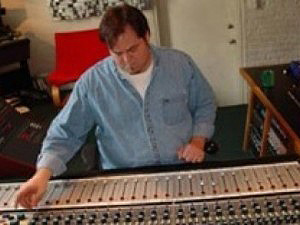
Doug McBride
Let’s get honest. Many of us have envisioned ourselves at the helm of our own mega-studio. Ten years ago, that dream may have made sense, but considering current economic and industry trends, smaller studios have not only become a more viable option, but, in many cases, a smarter one. But it’s important to remember that when we talk about shooting for a small-sized setup, we’re not suggesting shooting for small-sized goals. In fact, studios throughout the country that don’t have the jumbo staff and sprawling facility space are making a pretty impressive mark on the industry in their own right, proving that it’s more about how you think, what you do, and who you tell than it is about what you look like.
THINK LIKE A CONCIERGE
The music industry is often characterized as a machine that simply generates one song after another, as if it were some sort of robotic process that lacks any human touch. Those of us who are involved with the industry—on just about any level—know that’s hardly the case. After all, the driving force behind our admittedly challenging and cut-throat industry is people. And most people would much prefer being greeted by, “Come on in. Let me get you a cup of coffee,” rather than, “Please take a number. We’ll be with you shortly.” If you want your clients to keep coming back and create a positive buzz about your studio, you’ve got to serve people, and serve them well. “Successfully operating a studio is a lot like being a concierge at a hotel,” says Brian Reeves, engineer and co-owner of The Jungle Room, a popular L.A. studio with a three-person staff. “When you’re a guest at a hotel, you expect that the bed will be made, the furniture will be dusted, and there will be a mint on the pillow. That’s how we treat our clients. We make them feel like they are important, we cater to their needs, and we make sure they know we care about them.” Considering their impressive client list, which includes heavyweights like Disney and Sony and classic artists like Billy Idol and Carlos Santana, it looks like they may be onto something.
“When prospective clients contact me, I want them to know that they are going to get my personal attention and that I’m going to be writing the music myself, even if it requires me to work 18-hour days (which is often the case),” says Denver-based composer Charles Denler. In spite of the fact that Denler works completely on his own and operates far from Hollywood, he holds the record for having more upcoming films than any other film and television composer to date, according to the Film Music Network. He believes that’s a testament to his personal approach. “I want to get to know my clients, find out what makes them tick, and understand what the heart of their project is. That makes all the difference.”
According to Doug McBride, the owner of Chicago’s Gravity Studios, “The single most important thing in what I do is make sure that every client leaves happy.” McBride, who has worked with such notables as Smashing Pumpkins, Goo Goo Dolls and Buddy Guy, says that there has never been a time when this has been more important. “If we’re asking a band to spend their hard-earned money at our studio, especially given the current economy, they have to know that you care how their project turns out. It’s really important to imply a promise that they’re going to leave happy and that we’re going to make sure of it.” He admits this promise sometimes results in having to work harder, but he wouldn’t have it any other way.
“There are a lot of smart, talented people in the business, and there’s definitely comparable equipment at other studios—and more sophisticated equipment at the big ones—but there’s nothing better for clients than creating a comfortable environment,” says Kevin Anderson, co-owner of The Jungle Room. “We’ve always got hot coffee, a bagel or two in the fridge, and a book containing menus from every restaurant in town.”
Charles Denler
DO WHAT YOU DO…WELL
That’s not to say, of course, that just because you’re a small studio, you can chintz on equipment. While you don’t you have to go for the Rolls Royce, you do have to figure out how to make the Acura sound like one.
“From a sonic standpoint, there’s a certain degree of quality that we demand and we don’t let a project leave here that’s not at that level,” says McBride, who made the choice recently to scale down some of the equipment at his facility, but wasn’t about to compromise on quality. “We had what I guess you could say was a shrine to vintage gear. But we realized that to make the studio accessible to bands who are struggling to survive economically, we’d have to make some changes.” One of those changes involved scaling down his large-format console to a Rupert Neve 5088 console. McBride says it was the right decision because they’re still able to create phenomenal quality minus a lot of the hidden costs associated with the larger board. It’s true, however, that the perception of smaller studios can cause high-profile clients to hesitate, even when considering working with engineers that have serious credentials like Reeves. “A producer I know was working on a major artist’s project and had decided to record and mix the album at a very well-known studio in L.A. He was supposed to come to us just to recut the drums on one song for some creative reasons,” explains Reeves. “Ultimately, he was so knocked out by the drum sound we were able to create that he wound up doing all of the drums and completing the second half of the project here.”
TELL EVERYONE
You can do the highest-quality work with most impressive clients, but if you don’t tell others about it, it’s not going to help expand your business. “There’s literally no excuse for bad communication,” says Denler. “Everything from the iPhone to Facebook says that people want to communicate, so if you want to succeed, you’ve got to learn to do it well.” He practices what he preaches: Each year, Denler, sends out thousands of emails to targeted industry professionals and is always available to give clients one-on-one time. Is it any wonder that one of his recent gigs was composing the music for Honda’s summer “Mr. Opportunity” commercials?
In spite of their connections and stellar reputations in their respective segments of the industry, both the Jungle Room and Gravity also engage in actively promoting their studios by frequently updating their Websites with their latest accomplishments.
“It’s not enough to rely on what people hear about you, so I don’t just depend on word of mouth to get new business,” says Denler. “Most of the work I get has come from me working my butt off to get it!”
Studio Unknown is full-service audio post production facility and recording studio that specializes in helping clients discover creative sound for film, video, web, gaming, and artist projects. For more information, visit www.studiounknown.com.
